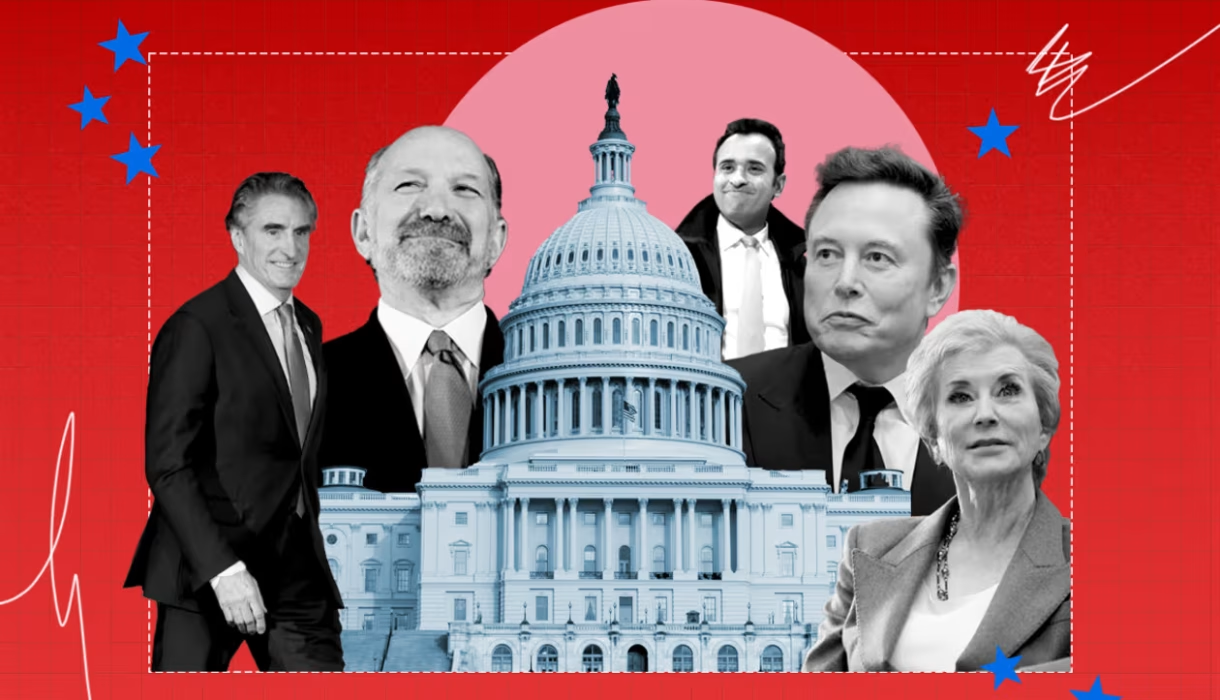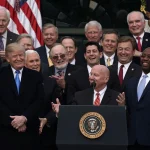
Billionaires Pulling the Strings: How Wealthy Elites Control the FTC & Treasury
How Billionaires Control the FTC & Treasury
The Federal Trade Commission (FTC) and the U.S. Treasury Department are supposed to protect consumers, enforce antitrust laws, and ensure fair markets. But what happens when the very billionaires and corporations these agencies are meant to regulate end up controlling them?
Over the past few decades, a dangerous trend has emerged: regulatory capture—where government agencies, designed to police big business, instead serve the interests of the ultra-wealthy. From lax antitrust enforcement to Wall Street insiders running financial oversight, the system has been rigged in favor of those who can afford to buy influence.
This isn’t conspiracy theory—it’s well-documented reality. Let’s break down how billionaires manipulate these institutions, why it matters, and what we can do about it.
The Revolving Door: From Regulators to Corporate Lapdogs
One of the most glaring ways billionaires exert control is through the “revolving door”—where regulators and policymakers cycle between government roles and lucrative private-sector jobs in the industries they once oversaw.
- FTC Officials Going Soft on Big Tech: Former FTC chairs have later taken high-paying jobs at law firms representing Amazon, Google, and Facebook—the same companies they were supposed to regulate.
- Treasury’s Wall Street Ties: Multiple Treasury secretaries (like Steve Mnuchin and Robert Rubin) came straight from Goldman Sachs, only to return to finance after shaping policies that benefited big banks.
- SEC’s Weak Enforcement: Former Securities and Exchange Commission (SEC) chairs often join hedge funds or corporate boards, incentivizing them to go easy on Wall Street while in office.
This isn’t coincidence—it’s a system of rewards for regulators who play ball with corporate interests.
Dark Money & Lobbying: Buying Policy Outcomes
Billionaires and corporations don’t just rely on the revolving door—they flood Washington with money to ensure favorable policies.
- Big Tech’s Lobbying Power: Amazon, Google, and Meta spend hundreds of millions annually on lobbying, effectively neutering antitrust efforts.
- Wall Street’s Influence: The financial industry spends more on lobbying than any other sector, ensuring weak oversight (even after the 2008 crash).
- Think Tanks & “Experts”: Billionaire-funded groups (like the Koch network or the U.S. Chamber of Commerce) push deregulation under the guise of “free-market” policy.
The result? Agencies that should be cracking down on monopolies and fraud instead protect the status quo.
Case Studies: How the FTC & Treasury Serve the Rich
The FTC’s Weak Antitrust Enforcement
- Despite record corporate consolidation, the FTC has rarely broken up monopolies in tech, pharmaceuticals, or agriculture.
- Example: Amazon’s dominance in e-commerce and cloud computing has gone largely unchecked, while small businesses suffer.
The Treasury’s Wall Street Favoritism
- After the 2008 financial crisis, no major bankers went to jail—instead, Treasury bailed them out with taxpayer money.
- Under recent administrations, Treasury has rolled back financial regulations, making another crisis more likely.
The SEC’s Failure to Police White-Collar Crime
- Insider trading and stock market manipulation rarely lead to serious consequences for the ultra-wealthy.
- Example: Despite overwhelming evidence, few hedge fund managers face real penalties for market manipulation (see: GameStop, meme stocks, and dark pools).
The Consequences: Why This Should Anger You
When billionaires control the regulators:
✔ Prices stay high (monopolies face no real competition).
✔ Wages stay low (corporate power crushes unions).
✔ Financial crimes go unpunished (the rich play by different rules).
✔ Democracy erodes (policy is shaped by donors, not voters).
This isn’t just unfair—it’s economic warfare against the working and middle class.
How Do We Fight Back?
Policy Solutions
- Ban the revolving door: Impose strict cooling-off periods before regulators can work for corporations they oversaw.
- Publicly funded elections: Reduce the influence of billionaire donors.
- Strengthen antitrust laws: Break up monopolies and empower the FTC to act boldly.
Grassroots Pressure
- Support groups like the Revolving Door Project and OpenSecrets that track corporate influence.
- Demand that politicians refuse corporate PAC money.
Public Awareness
- Share investigations (like ProPublica’s reporting) on how regulators are bought.
- Vote for candidates who aren’t beholden to corporate cash.
Take Back the System
The FTC, Treasury, and SEC should work for us—not billionaires. But as long as money controls politics, these agencies will keep serving the elite.
The solution? Anger, awareness, and action. Expose the corruption. Support real reformers. And demand a government that works for the people—not the powerful.
What do you think? Should we name names in the next post? Let me know how you’d like to dive deeper.
🔥 Share this if you believe regulators should WORK FOR THE PUBLIC, not billionaires!
regulatory capture, revolving door politics, corporate lobbying, FTC corruption, Treasury Wall Street ties, SEC enforcement failure, antitrust manipulation, billionaire power, government for the rich, political corruption
#RegulatoryCapture, #BillionairePower, #FTC, #TreasuryDepartment, #SEC, #WallStreet, #CorporateLobbying, #PoliticalCorruption, #BreakUpBigTech, #PublicAccountability

